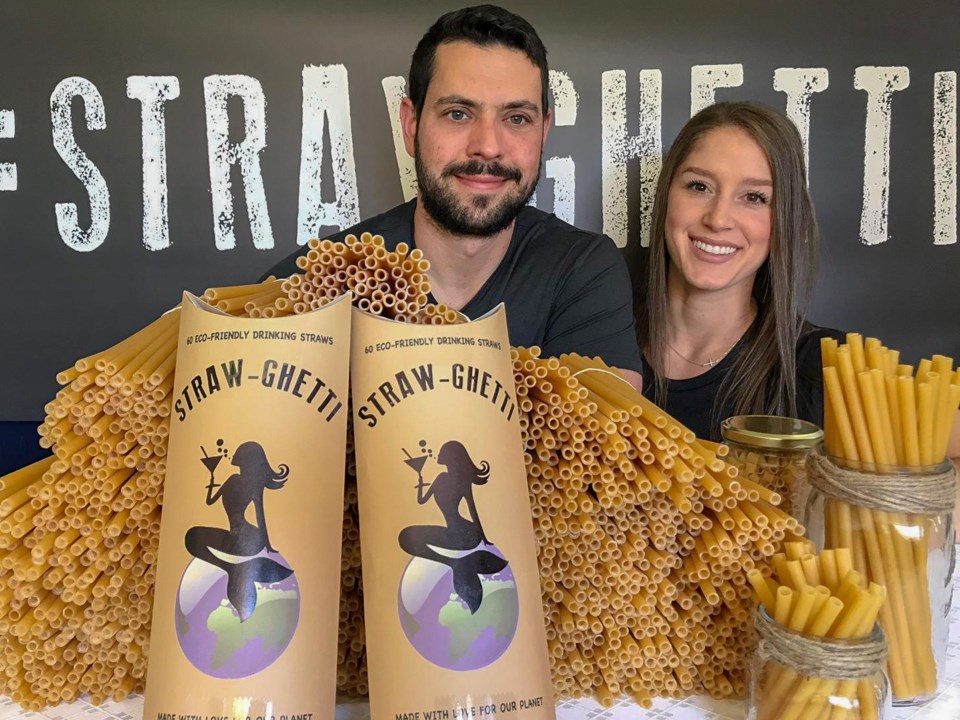As municipalities across the Lower Mainland consider a ban on plastic straws, the race for an eco-friendly replacement has led back to the dinner plate.
From seaweed to hybrid tapioca-rice blends, several start-ups have thrown in their hat with the hopes that their product will come out top-straw.
But while these companies look to a lab-tested repurposing of biodegradable ingredients, one Coquitlam duo has found a more familiar solution.
With two “huge Italian families,” finding answers in pasta was an easy step for partners Cory Melville and Vanessa Brascia.
In February, the two Coquitlam natives launched ‘Straw-ghetti,’ eco-friendly straws cut from tubular pasta.
Leveraging an old family connection in the Italian pasta industry, the partners looked to Brascia’s grandfather, Nonno Guiseppe Carlucci.
“The type of pasta that we use for straw-ghetti is my Nonno's favourite,” said Brascia. “He's a big inspiration behind it. He's on our packaging.”
When the pasta arrives in Coquitlam from Italy, the whole family chips in, cutting and counting pasta, folding and taping boxes, and packing everything up before the straws are sent out across the Lower Mainland, including stops in Coquitlam, Port Coquitlam, New Westminster, Burnaby and Vancouver.
The straws are made up of just two ingredients, semolina flour and water. Even so, Brascia claims they will last two and a half hours in a drink before softening up.
Straw-ghetti comes in tall and short sizes, which means a house full of left over pastina.
“We have bags and bags of pasta,” said Brascia. “Nothing is going in the garbage. We'll cook it ourselves, we'll make soup, we'll make macaroni. We want to give it away to less fortunate.”
When they’re not working their day jobs — Melville is a plumber and Brascia buys construction material for film sets — they say they go door-to-door, offering straw samples to people.
So far, they have found customers in juiceries, smoothie bars, supplement stores and speciality kitchen shops.
While you might think their biggest competition would come from cutting edge rice-tapioca hybrid straws, Brascia says cheaper, paper straws are the toughest to beat.
“The market is huge right now because everyone is trying to do their part,” she said.
“A lot of people will think, "Oh, god. It's just a straw. But for us, if a straw-ghetti replaced every straw in our ocean that's a big step in the right direction.”



